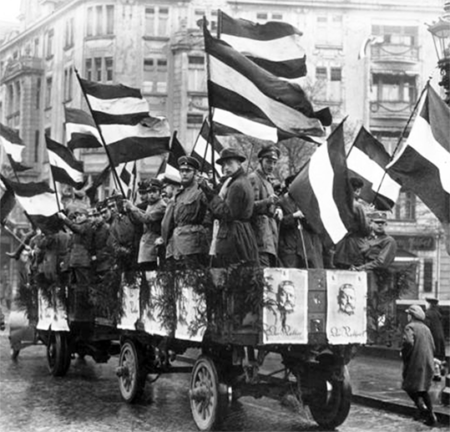
The election of Paul von Hindenburg as German president in 1925 was a pivotal moment in the history of the Weimar Republic. It was not Hindenburg’s first foray into politics. The former military chief had nominated as a candidate for the presidency in 1920 before the Reichstag cancelled elections in the wake of the Kapp Putsch. After this, Hindenburg slipped into retirement at his Hanover estate, offering occasional press commentary on political matters. The presidency opened up again after Friedrich Ebert’s death from appendicitis in February 1925. Hindenburg, now aged 78, was approached by right-wing parties and encouraged to stand as a candidate. After refusing initially, he changed his mind and submitted his candidature on April 9th. Two days later, Hindenburg delivered his only public address of the campaign. In this speech, dubbed his ‘Easter Message’, Hindenburg told listeners the president must stand above parties and party politics:
To the German people,
“Germans of all races and provinces, who have at heart the well-being of the Fatherland, have offered me the highest post in the state. I obey this call, after long reflection, in homage to the Fatherland.
My life is open before the whole world. I believe that even in difficult times, I have done my duty. If duty orders me now – without consideration of party, person, origin and profession – to act as President upon the basis of the constitution, I shall not fail.
As a soldier, I have always thought of the whole nation and not of parties. These are necessary in a state ruled by a parliament, but the head of state must stand above them and independently of them, and must rule for every subject.
I have never lost my faith in the German people and in the support of God. But I am no longer young enough to believe in sudden changes. No war, no inner insurrection can free our fettered and disunited nation. It needs long, quiet, peaceful work. It needs, above everything, to be delivered from those who have made a business of politics. No state can exist without order and purity in its public life.
The President is especially called upon to uphold the sacredness of justice. Just as the first President [Ebert]… never denied his origin from the Social Democratic working classes, so no one should ever presume that I have given up my political convictions…
I do not consider the form of government of principal importance but the spirit that pervades that form. I stretch out my hand to every German who thinks nationally, who protects the dignity of the German name at home and abroad, who desires freedom of worship and class understanding, and put to him the request: ‘Help me to work for the resurrection of the Fatherland!’.”
Hindenburg did almost no campaigning himself but he was vigorously supported by right-wing nationalist parties, particularly the German National People’s Party (DNVP). The elections were held on April 26th 1925. Hindenburg won the presidency, securing 900,000 more votes than Centre Party candidate Wilhelm Marx. The election of the former World War I commander-in-chief triggered shock and outrage around the world. Hindenburg was sworn in on May 12th 1925. After taking the oath of office, he made the following remarks to the Reichstag:
“Accept my most hearty thanks for the words of welcome you have just spoken in the name of the people’s representatives… The Reichstag and the President belong together because they are both directly chosen by the people. Upon this basis alone rests their power. Both together incorporate the sovereignty of the people, which forms the ground of our political and constitutional life. That is the deep meaning of the constitution to which I have just now most solemnly pledged myself.
But while the Reichstag is the place where differences of opinion and political conviction wrestle with each other, the President must serve all the working and creative powers of the people, outside party interests. So I wish once more to expressly state that I shall devote myself to the uniting of our people. This great task will certainly be made easier if… the parties are not concerned with the advantage of one party or profession, but with the question of who can most faithfully and successfully serve our heavily tried people.
I confidently hope that a noble rivalry in true fulfilment of this duty will form a sure basis upon which, after the strife of intellect and opinions, we shall find common ground in the work entrusted to us.”
